When to Consider Multi-Gene Testing in Early-Stage and Metastatic Breast Cancer
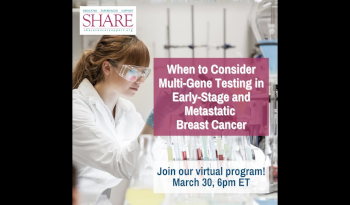
You can’t change your genes, but knowing and acting on your family health history is essential for you and your medical team in developing your treatment plan. The National Comprehensive Cancer Network (NCCN) recommends genetic testing NCCN recommends genetic testing, including the BRCA1/2 genes, for all metastatic breast cancer patients because it could change treatment […]
Blood Clots and Cancer: What You Need to Know

Did you know 1 in 5 blood clots are related to cancer and its treatment? Treatments involving hospitalization, surgery, chemotherapy, and hormonal therapy can increase your blood clot risk. In collaboration with the National Blood Clot Alliance (NBCA), this program aims to inform all cancer patients about the risk of blood clots. The speaker, Jeffrey […]
Understanding the Relationship Between Estrogen and Uterine Cancer
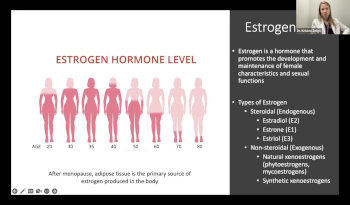
Estrogen can play a role in uterine cancer in a number of ways. Many uterine cancer tumor types are considered to be hormonally driven, especially endometrioid tumors. Obesity is a strong risk factor as it increases and produces additional estrogen levels in our bodies. Uterine cancer treatments are evolving, and today experts can treat estrogen […]
Part I: Not all DCIS is “Risky”
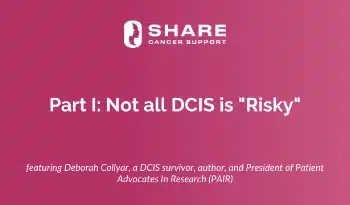
Ductal carcinoma in situ (DCIS) is considered the earliest form of breast cancer and noninvasive, meaning it hasn’t spread out of the milk duct and has a low risk of becoming invasive. In part 1 of the DCIS webinar series, you will learn about different types and grades of DCIS and why that is important. […]
Cervical Chat – Early Menopause and HRT
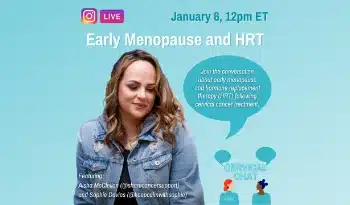
Join the conversation with Aisha McClellan (@sharecancersupport) and Sophie Davies (@keepcalmwithsophie) as they chat about early menopause and hormone replacement therapy (HRT) following cervical cancer treatment. This program will be held on Instagram Live. https://www.youtube.com/watch?v=ZjkxcMGQOWg
Understanding Lynch Syndrome
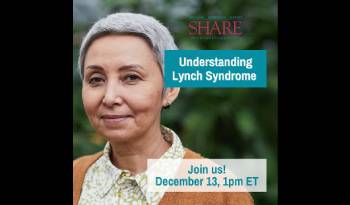
People with Lynch syndrome have a higher risk of certain types of cancer, including endometrial, colorectal, and ovarian cancers. Heather Hampel, MS, CGC, Associate Director of the Division of Genetics and Genetic Counseling at City of Hope, will discuss genetic testing, hereditary cancer risk, prevention, and the latest updates for Lynch syndrome care. Key takeaways […]
Optimizing the Management of Early-stage TNBC: Symptoms, Treatments, and Recurrence
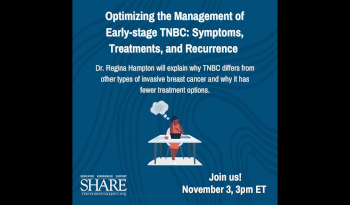
Triple-negative breast cancer (TNBC) accounts for about 10-15% of all breast cancers. Dr. Regina Hampton, a board-certified general surgeon with a focus on breast health and breast cancer in the DC Metro area, explains why TNBC differs from other types of invasive breast cancer, why it has fewer treatment options, and why it tends to […]
The Impact of Targeted Estrogen Receptor (ER) Imaging on Breast Cancer Patients
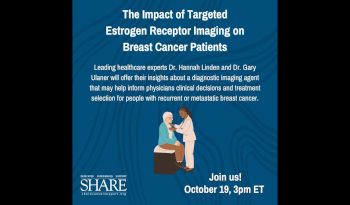
Leading healthcare experts Dr. Hannah Linden and Dr. Gary Ulaner will offer their insights about a diagnostic imaging agent that may help inform physicians clinical decisions and treatment selection for people with recurrent or metastatic breast cancer. Key takeaways from webinar viewers: FES PET scan better than FDG PET to diagnose metastatic diseases. Helpful tool […]
Let’s Talk About It: TNBC – The Latest Genetic Testing Guidelines
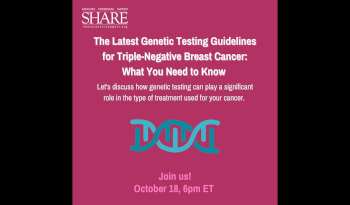
Genetic testing can play a significant role in the type of treatment used for your cancer. There are new genetic testing guidelines specifically for those diagnosed with triple-negative breast cancer (TNBC). Now more targeted therapies are being developed to treat those with TNBC more intentionally. Our speaker Christina Spears, breast cancer genetic counselor at The […]